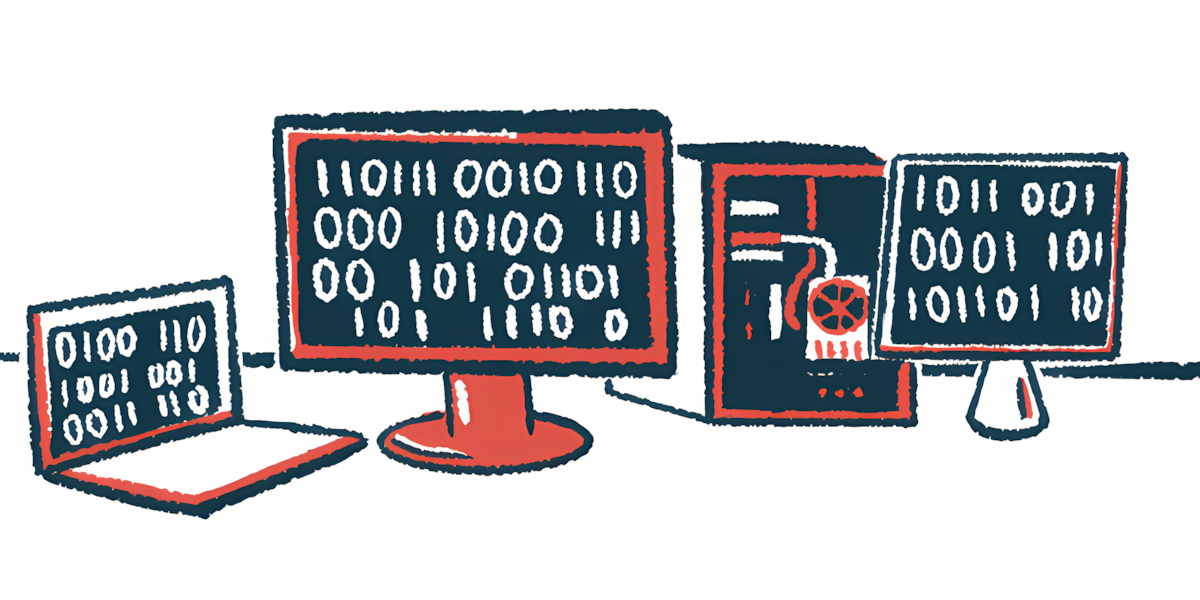Online training offers real-world, cognitive benefits for MS patients
Participants said strategies they learned helped prepare them for daily tasks
Written by |

An online training program for managing memory and cognitive difficulties may help people with multiple sclerosis (MS), a study suggests.
The program, delivered entirely through virtual sessions, taught participants practical strategies to boost memory then guided them about using the techniques in real-world situations, such as organizing errands, planning meals, or shopping. The participants found the program to be both engaging and applicable to their daily lives.
“Participants reported increased preparedness for learning, improved memory, and enhanced confidence in applying the acquired skills to daily tasks,” the researchers wrote, adding the results suggest “telehealth-based cognitive intervention is well accepted by patients and may improve cognitive functions in persons with MS.” The study, “Enhancing everyday memory and participation in multiple sclerosis: A pilot study of a metacognitive strategy-based intervention,” was published in Multiple Sclerosis Journal-Experimental, Translational and Clinical.
Cognitive dysfunction is a common MS symptom, affecting more than half of patients at some point during their disease. It often manifests as difficulties with memory, attention, learning, and information processing, challenges that can interfere with daily activities, employment, and social engagement.
“Therefore, cognitive treatment is crucial for individuals with MS who are dealing with cognitive challenges,” the researchers said.
Existing interventions, such as self-generation strategies, where participants learn to create associations, stories, or personal meanings to boost memory, have been shown to improve memory, but often fail to translate into meaningful benefits in daily life, perhaps because they require repeated clinic visits, which can be challenging for people experiencing mobility issues or fatigue.
Telehealth training for improving cognition
Here, researchers developed a telehealth-based cognitive intervention built on the protocol of a previous study that tested a self-generation strategy intervention to improve memory in people with MS.
To examine the feasibility and impact of the intervention, they conducted a pilot study involving 10 adults with MS, who had memory and cognitive challenges and were able to join the program remotely. The six-week program consisted of 12 virtual sessions, held twice a week, via Zoom, with each one lasting between 60 and 90 minutes.
The program started with six sessions on memory strategies, as in the previous study, followed by six sessions dedicated to enhancing metacognitive skills. In this second phase, the participants were guided to become more aware of their own cognitive challenges (self-awareness) and to use strategies to manage them (self-regulation). This was achieved by applying newly acquired memory skills in simulated real-life tasks, helping them transfer and adopt these strategies to everyday situations.
Throughout the program, an occupational therapist guided the participants to anticipate challenges, select appropriate strategies, monitor their performance, and reflect on their outcomes. The researchers assessed the patients’ cognitive skills before starting the program, halfway through, and at the end.
Gains from MS training program
One gain was seen in metacognitive skills, as measured by the Self-regulation Skills Interview (SRSI) where lower values indicate greater proficiency. SRSI scores dropped from an average of 42.6 to 27.1 throughout the intervention. Both awareness and strategy subscores also improved.
The participants also saw significant improvements in short- and long-term memory. On the Contextual Memory Test, their immediate recall of 20 picture cards increased from an average score of 10.1 before the intervention to 14.3 after, while 15-minute delayed recall scores improved from 9.6 to 15.
Functional status, as measured by the Functional Behavior Profile, increased from 92.2 to 104.5, reflecting better performance in managing daily tasks, social interactions, and problem solving. These improvements stabilized midway through the program, however.
While the program improved cognitive and functional skills, broader participation in everyday activities, as measured by the Activity Card Sort, didn’t increase, suggesting “other factors, such as environmental barriers, motor challenges, lack of motivation, and social support, may influence engagement levels,” the researchers said.
Still, the participants reported “improved focus, self-confidence, and reduced anxiety, along with a better understanding of their memory strategies, and said the program was directly applicable to their daily lives, providing a sense of accomplishment.
“The treatment was applicable … I’m able to recall names better …. I live in a senior place, and because I needed to remember names, the treatment helped me,” one patient said.
Said another: “The treatment helped me to assess my memory. I liked the length of the treatment. The treatment also helped in my interactions with people. I depend on a driver service, and the treatment helped me to remember what I need to do when I leave the house and [be] ready to hop in the taxi. I feel like I can apply some things from the treatment to my life.”
While its feasibility and efficacy must be confirmed in larger trials, the findings suggest the remote approach “facilitated learning, memory, self-awareness, and self-regulation among participants, leading to increased self-confidence and improved memory abilities,” the researchers wrote.



